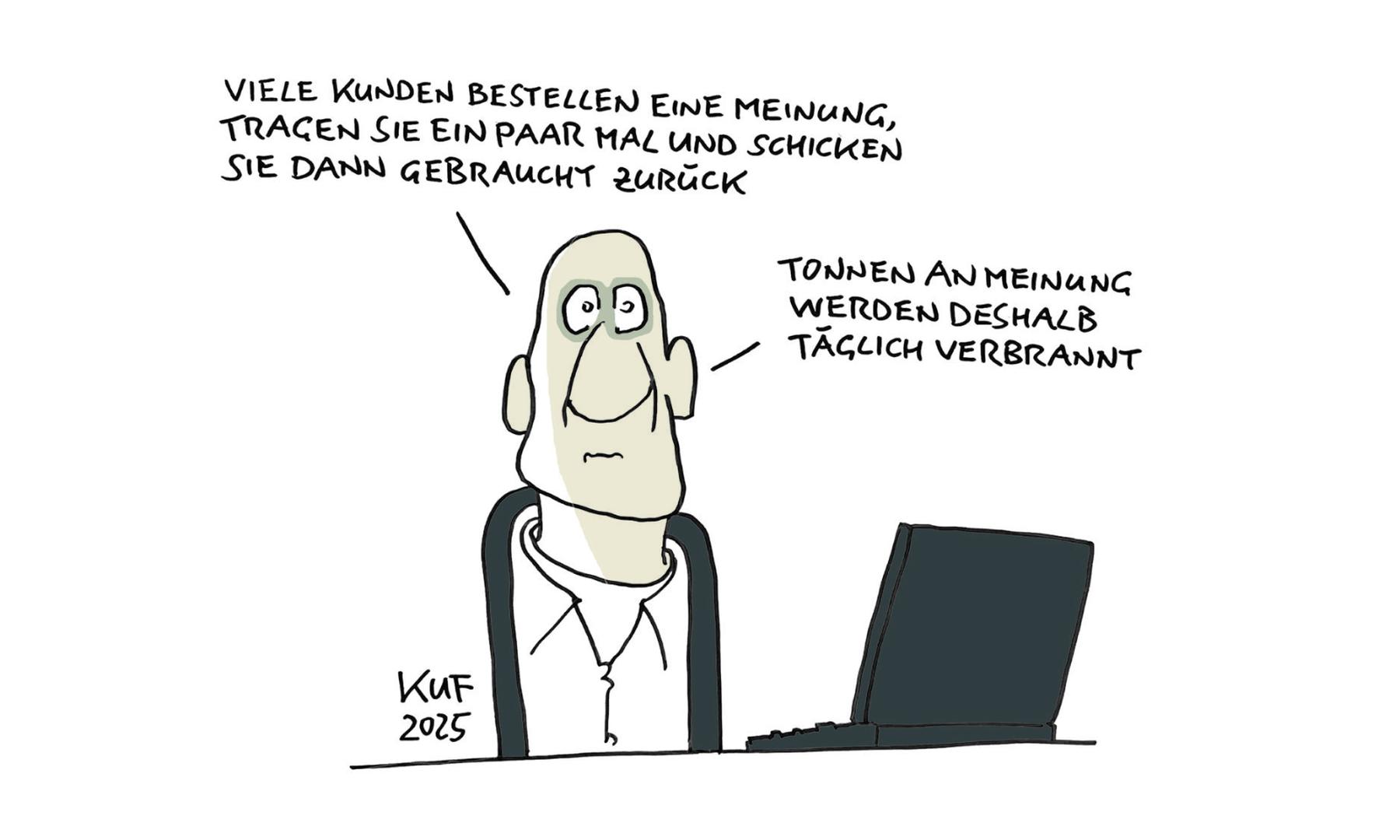Digital feudalism on the marketplace of ideas – Diepresse.com

How Big-Tech entrepreneur mock the independent journalism and destroy public discourse.
Feudalism is the rule of a few that you have equipped with power and that now use it for themselves, in extreme cases to the detriment of everyone else. We are currently experiencing the third major communication revolution in human history with the networking of the world after the invention of writing and book pressure. This is wonderful, on the one hand. Because suddenly a lot of people have a voice that were previously damn silent.
On the other hand, a kind of feudal rule returns under the current media conditions, characterized by a new interplay of ideology and media technology, disguised as a flower power and big-tech vision, which acts that all people of the planet can now exchange directly and without difficulty in a huge, permanently vibrating communication universe.
There are a few heavy platform oligaries like Elon Musk (Owner of X, once Twitter), Mark Zuckerberg (Facebook, Instagram) and Jeff Bezos ((Amazon), who have started a major attack on independent journalism that has not yet been deciphered. It is an attack that is suitable to endanger independent journalism and to destroy the marketplace of ideas, this vulnerable cosmos of discourse and argument.
The example of Jeff Bezos
Three strategies of the intervention of the big tech entrepreneurs are emerging. Firstly, the journalistic mindset, the use of your own media and platforms to displace unpopular voices or propagate desired positions.
Here Jeff Bezos is suitable as an example, owner of the « Washington Post“. When Donald Trump became more likely, he quickly made the newspaper’s already formulated election recommendation for Kamala Harris stop. He recently forced the opinion department into a special comment line. From then on, according to his announcement, it is important to defend « personal freedoms and free markets » – this too is a mockery of editorial autonomy.
Second, the platform’s journalistic standards are changed according to discretion and personal-private self-interest. Mark Zuckerberg’s behavior can serve as an example here. After Trump’s election victory, he had the fact check abolished on Facebook in the US prank in the United States, an idea that Donald Trump attributed to his threatening gestures towards the head of the company.
The logic of the algorithms
You can hardly overestimate this form of power. Already in 2017 there was – again Facebook was called an example – a far -reaching intervention in the so -called news feed. Since then, content has been preferred to the top, triggering outrage and anger; This also an elementary change in the communication climate.
This change is at the expense of a rested, thoughtful discourse and serious journalism, which has long since lost sovereignty over the central sales channels and cannot help but also orientate itself to the logic of algorithms.
Small price question: What happens when Mark Zuckerberg finds tomorrow that journalists are simply not funny enough and write too much about the fact that Facebook was orchestrated the Rohingya’s displacement and murder in Burma?
In order not much need to push journalistic offers on its platforms, it doesn’t need much, only a small correction of the algorithms. Platforms can be used, more and more, as a globally usable propaganda instrument for self -controlled feudal lords who have no shimmer of journalistic responsibility.
The Jauchgrube Twitter/X
Third, some big tech entrepreneurs choose the path of public demonization of journalism. Here, Elon Musk can now be mentioned, who has transformed his Twitter/X platform into a Jauchtgrube and exudes his media contempt.
Anti -Semitic and racist attacks, propaganda of all kinds, the disparage of dissenters – all of this has stopped too often since Musk has taken over. In addition, he aims to replace professional journalism with the swarm intelligence of the many, and attacks classic media as a fake news producer without any failure.
He sets up to a hundred postings a day on a wide variety of topics, the power of his more than 200 million followers in the back. A climate of distrust is fired, which, in conjunction with other attacks, aims to undermine the credibility of journalism.
So what to do – knowing that pessimism is a waste of time and democracy is not a viewer?
Journalism of the future
On the one hand, it needed a strengthening of individual judgment, an unprecedented, normatively decided educational effort in the struggle for media mutuality at the level of the digital time. Here the school system still reacts much too slowly, too technology, too confused, unfortunately.
On the other hand, a careful regulatory effort is necessary. Fighting disinformation without restricting the freedom of communication too much – this is what matters.
It can be stated: the European Union Is with that Digital Services Act Quite on the right track, but in the face of the threats from the USA, unity and determination needs to be made. After all, an educational effort is necessary that must come from journalism itself.
The journalism of the future should be transparent and dialogical, supported by insight that one rely on the solidarity of the readers like never before. Because the fact is: Those who used to have been called the audience are even media powerful, they have long since become the fifth violence of the networked, research and publish on their own.
Publicist Middle Ages
The fact is also: the ads break down dramatically, here too the weights shift in favor of a few digital giants. In 2024 alone, three companies – Google, Facebook and Meta, Amazon – were able to record more than half of all advertising revenues worldwide.
From self -interest alone, it is always important to explain how news currents are filtered, why truth -oriented research is needed and how expensive serious reporting can be.
Again: currently a few individuals have far too much power. If these individuals happen to be the smartest, most kind and wisest people on earth (which is not the case), their influence would nevertheless be a scandal for every democratic and freedom -minded person. Digital feudalism is a journalistic Middle Ages. It does not fit into a modern, enlightened world.
Emails to:
The author
Bernhard Pörksen (* 1969 in Freiburg im Breisgau) is a professor of media science at the University of Tübingen. He recently published the book « Listening. The art of opening up the world » at the Hanser publishing house.






:format(webp)/s3/static.nrc.nl/images/gn4/stripped/data131614440-215072.jpg)
